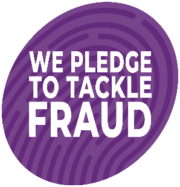Getting started with Personal Health Budgets
An article explaining Personal Health Budgets (PHBs), advice from experienced parents, and a selection of helpful resources for parents who are considering getting a PHB, or need some help to get started.
What is a Personal Health Budget (PHB)?
In England, Personal Health Budgets (PHBs) are funds you receive, through a direct payment, to meet your child’s health needs. PHB funding comes from the NHS, and payments will made through your local Clinical Commissioning Group (CCG) or Integrated Care System (ICS).
Along with a PHB, you will have a personal health care plan. This plan helps you decide your child’s health and wellbeing goals, together with the local NHS team who support you and sets out how your budget can be spent.
A PHB is not intended to cover all aspects of NHS health care: in-patient care, emergency services, general practitioner services (GP), and pharmaceuticals are all excluded.
You may also receive personal budgets for education and social care. An Education personal budget is included in an Education, Health and Care (EHC) plan, and will only include the funds needed to buy more specialist or individual support than the school or college is expected to provide.
There is no clear definition between what constitutes a social care need and what constitutes a health care need. In general terms, a health care need is focused on the treatment, control or prevention of an illness or disability and the care or aftercare of the individual with these needs. A social care need is related to the practical support required for daily living, provision of meals, home adaptations, social interaction, and recreational and cultural activities which enhance one’s independence.
Who is Eligible for a PHB?
Since 2014, anyone receiving NHS continuing healthcare, including a child, has the right to have a personal health budget.
Your eligibility for NHS continuing healthcare depends on your assessed needs, and not on any specific diagnosis or condition. To get NHS continuing healthcare you must go through a formal assessment process, which confirms a primary health need. If you are unsure if you need an assessment, you can view guidance and checklists here.
You also have the right to a PHB if you are an NHS wheelchair user. People who are referred and meet the eligibility criteria of their local NHS wheelchair service, and people who are already registered with the wheelchair service, are eligible for a personal wheelchair budget when they require a new wheelchair or specialist buggy, either through a change in clinical needs or in the condition of the current chair.
Guidance written to explain the right to PHBs can be found here.
How do PHBs differ from care packages?
PHBs are different from the care packages delivered by CCGs or care agencies. If you have a PHB, you will be the employer of the carers who look after your child, with the CCG providing you with the funding you will need to employ these carers. A PHB can also allow you to purchase other services and equipment to help in your child’s care.
One of the main advantages of having a PHB is that you choose what sort of care your child will receive, within the parameters set by your CCG.
There are some disadvantages to having a PHB as well. Some parents find that there is too much extra work in managing carers themselves.
To read more about the pros and cons, see the advice from experienced parents below, and read our article on the Information Hub about having carers and personal assistants in your home.
How do I apply for a PHB?
If you think you are eligible for continuing health care and would like to apply, you should speak to your local NHS team or the health professional whom you liaise with the most, for example, a GP or Nurse, who can assist you with the process.
You can also write directly to your Clinical Commissioning Group (CCG) or Integrated Care System (ICS). You can find template letters to help you with this here.
How much money will I get?
The amount that someone receives in their personal health budget will depend on the assessment of their health and wellbeing needs, and the cost of meeting these needs.
The personalised care and support plan, developed in partnership with their NHS team, will outline how the budget will be used to meet needs. Once the plan has been agreed, the final budget will be confirmed.
It is important to note that a PHB will not cover all the NHS care a person may need. Attending A&E, hospital stays and GP appointments, are out of the scope of a personal health budget, and will not be included.
How can I spend a PHB?
You will be able to use a PHB for a range of things to help you meet your child’s needs and goals, for example, therapies, personal care, and equipment.
You will not be able to pay for emergency care and care you normally get from a family doctor. You are also not allowed to spend the money on gambling, debt repayment, alcohol or tobacco, or anything unlawful.
Some of the ways direct payments can be used are:
- For help with your child’s personal care, for example, bathing, dressing, eating, or help looking after them overnight.
- A service to look after your child when you are out.
- To help your child access or use leisure facilities.
- Help with household tasks to free up your time to look after your child.
- A place at a day nursery or after-school care.
- Someone to accompany your child on holiday.
Advice from experienced parents
We asked three parents about their experience of having a PHB, and if they had any tips for new parents. Click on the yellow boxes to see their responses.
Surrey parent
Our family was the first in our area to have a Personal Health Budget. We requested a PHB as we were not getting what we needed from our agency package, which was too restrictive. For example, the care provider chose what nights they would cover, and would not cover weekend nights. This was a problem for us as my husband worked shifts and regularly worked on weekends – meaning we needed that weekend night cover. Also, if a carer missed a night shift, which happened regularly, we could not “bank” that missed shift to use it at a later date – we simply missed the cover, and the agency received their fee from the CCG regardless.
We were also frustrated because we were given cover for five nights a week, but they had to be used by the end of the week. This meant that we couldn’t use three nights one week and seven nights in the next, which would have been helpful. Care packages should fit the needs of families, not just the care agencies.
Getting a PHB was the best thing I ever did. Recruitment was difficult at the beginning, and it is proving more difficult recently ever since Covid. However, the flexibility of a PHB means that we can make the care package work better for our family. It is also more cost effective: we used to only get five nights, but now we get seven due to savings on agency fees.
Before you start receiving your PHB make sure you know your stuff. Know your rights, the legislation and what you are entitled to. Ask for help from support networks like the WellChild Family Tree, and organisations like People Hub.
We use part of the PHB to contract a payroll team, who help with payslips, pensions, national insurance, and holidays for staff. You should also get employment insurance and make sure you factor these costs into your budget.
A good, honest relationship with the CCG and their financial team is important. PHBs work well if you’re proactive and able to manage the extra responsibility of employing staff.
Leeds parent
When you can get carers who stay for a long period of time, having a PHB can be amazing. It’s not perfect, but it’s better than the alternatives. For example, I need someone to help get my son ready for bed, which takes two and a half hours because of his needs. This gives me time to get some work done or to spend time with my other children. I am also able to get five hours of respite once per month when the carers are consistent, giving me much needed time to recharge.
However, there are downsides. I’m having problems at the moment with my carers. One of them just left after a short period of time and this seems to have become more common because of Covid. It used to be easier to recruit staff for the long term before Covid. We’ve had carers leave with very little or even no notice recently, which is really frustrating for me, and unfair for my son, who needs some stability.
The best thing about a PHB is that it is flexible. For example, it has allowed us to take a carer on holiday with us, meaning I could spend time with my other children and safely take my son with us. We can also use our carers when we’re in hospital so I can have a break and carry on working. This works really well and couldn’t happen with another type of care package.
My main tip would be to make sure you do everything correctly, as you will be audited. Keep records, and make sure you can prove every bit of expenditure goes back to improving the quality of life for your child. I keep record books to keep track of everything and use a company to manage things like payroll and holidays for my staff.
Surrey parent
Having a PHB has pros and cons. On the pros side, you can pick your own team and train them in the way you want things done much easier than you could with carers from an agency. You can use the money for essential resources as well as care, and you can use your own carers in the hospital.
I’ve had carers with me for 5+ years so they grow with the child and skill up as necessary, for example learning how to manage stoma, catheter, and central line.
The cons of having a PHB are doing the payroll and rotas for your staff. However, in the grand scheme of things I think this is manageable.
Other PHB resources
- NHS PHB FAQs – frequently asked questions about PHBs answered by the NHS
- NHS Leaflet – a leaflet designed to help you understand PHBs
- My Care Budget – a wiki run by parents who manage Personal Health Budgets. It contains in-depth guides, template letters, advice, and more.
- People Hub – an organisation created and led by people with lived experience of personal health budgets.
- Irwin Mitchell – has a helpful archive of template letters for families. These templates cover lots of topics, including PHBs.
The information in this article is specific to England. It was correct at the time of publishing but may be subject to change.
If you have any comments, ideas, or suggestions about this article please contact us at [email protected]
Please don’t forget to leave feedback by clicking the smiley face!
Kathy Gibson, Digital Information Officer
First published: December 2021
Last reviewed: September 2023
Next review: August 2024




